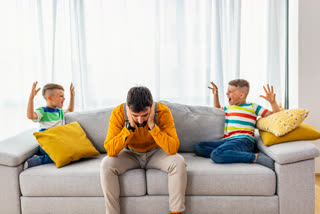Individualistic Western countries, which on average have fewer children, are the most affected by parental burnout, says a new study for which hundreds of scientists in 42 countries were mobilized.
Culture, rather than socio-economic and demographic differences between countries, plays a predominant role in parental burnout, showed the results published in the journal 'Affective Science'.
The global scientific community is worried about family stress-induced parental burnout. A high level of stress in the family can lead to parental exhaustion. Such suffering has serious consequences for both the parents and the children.
Western Countries Most Affected By Parental Burnout.
Parental burnout has been identified as a syndrome by researchers, and most of the time parents are ashamed about it, as parenting is believed to be a natural process. As per a study published in the journal 'Affective Science', cultural difference is one of the main reason for parental burnout in Western countries

"Prevalence varies greatly from one culture and country to another," said Isabelle Roskam from Universite Catholique de Louvain in Belgium. The study shows that the values of individualism in Western countries can subject parents to higher levels of stress. The results gain significance in a context where the mantra of "everyone for oneself" is spreading all over the world.
"Our individualistic countries cultivate a cult of performance and perfectionism. Parenthood in these countries is a very solitary activity, unlike in African countries, for example, where the entire village is involved in raising children," said Roskam, a parental burnout specialist.
Countries which often have many children are more collectivist. This dimension seems to protect against parental burnout, said the study. In addition, Western individualism is exacerbated by the current health crisis: Families find themselves isolated and cut off from their social relations.
So what measures can be taken to prevent stress in parenting?
"The first would be to revive in our cultures the dimension of sharing and mutual aid among parents within a community. And abandon the cult of the perfect parent and gain some perspective on all the parenting advice out there in order to choose what works for you," Roskam said.
(IANS)